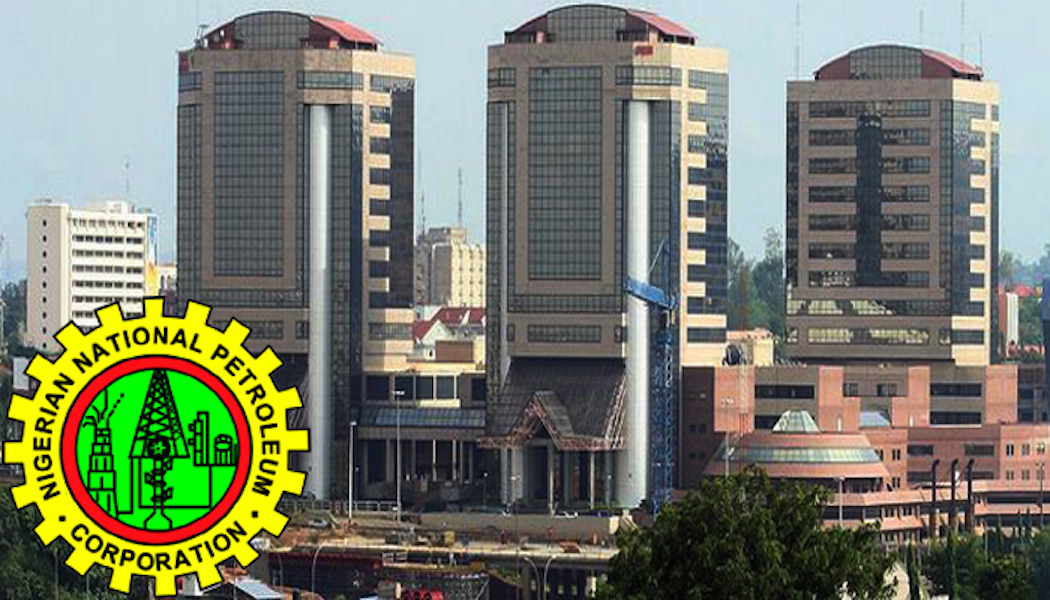Energy
$1.1bn US Sanction of Swiss Firm Exposes Corrupt NNPC Officials
Published
4 years agoon

Officials of the Nigerian National Petroleum Corporation (NNPC) have been implicated in a series of corrupt deals involving bribery of the officials by a Swiss firm seeking unmerited favour from the corporation.
The development has led to slamming of $1 billion fine on the Swiss company, Glencore, by the United States Department of Justice (DoJ).
Read Also:
The mining and commodities trading firm has agreed to pay over $1.1 billion for various infractions, including paying bribes to several African countries, including Nigeria, to get mouth-watering crude oil purchase contracts.
A press release by the DoJ revealed that between approximately 2007 and 2018, that Glencore and its subsidiaries caused approximately $79.6 million in payments to be made to intermediary companies.
It stated that this was done in order to secure “improper advantages” to obtain and retain business with state-owned and state-controlled entities in the West African countries of Nigeria, Cameroon, Ivory Coast, and Equatorial Guinea.
“Glencore concealed the bribe payments by entering into sham consulting agreements, paying inflated invoices, and using intermediary companies to make corrupt payments to foreign officials.
“For example, in Nigeria, Glencore and Glencore’s U.K. subsidiaries entered into multiple agreements to purchase crude oil and refined petroleum products from Nigeria’s state-owned and state-controlled oil company.
“Glencore and its subsidiaries engaged two intermediaries to pursue business opportunities and other improper business advantages, including the award of crude oil contracts, while knowing that the intermediaries would make bribe payments to Nigerian government officials to obtain such business.
“In Nigeria alone, Glencore and its subsidiaries paid more than $52 million to the intermediaries, intending that those funds be used, at least in part, to pay bribes to Nigerian officials,” the Justice Department stated.
Last year, Anthony Stimler, an ex- Glencore trader, pleaded guilty to a scheme to bribe officials of the Nigerian National Petroleum Corporation (NNPC) for a favourable oil contract.
Stimler, who worked on Glencore’s West Africa desk from 2002 to 2009 and again from around 2011 to 2019, said that he paid as much as $300,000 in bribes to fund the election campaign of a senior government official.
In 2018, the US Department of Justice launched an investigation into Glencore’s compliance with American money-laundering and corruption laws dating back as far as 2007. It concerned the mining giant’s operations in Nigeria, the Democratic Republic of Congo and Venezuela.
The US statement said that in the DRC, Glencore admitted that it conspired to and did corruptly offer and pay approximately $27.5 million to third parties, while intending for a portion of the payments to be used as bribes to DRC officials, in order to secure improper business advantages.
Glencore also admitted to the bribery of officials in Brazil and Venezuela. In Brazil, the company caused approximately $147,202 to be used, at least in part, as corrupt payments for Brazilian officials.
In Venezuela, Glencore admitted to conspiring to secure and securing improper business advantages by paying over $1.2 million to an intermediary company that made corrupt payments for the benefit of a Venezuelan official.
In July 2021, the former senior trader in charge of Glencore’s West Africa desk for the crude oil business pleaded guilty to one count of conspiracy to violate the FCPA and one count of conspiracy to commit money laundering.
Under the terms of the plea agreement, which remains subject to court approval, the Justice Department said Glencore pleaded guilty to one count of conspiracy to violate the FCPA, agreed to a criminal fine of $428,521,173, and agreed to criminal forfeiture and disgorgement in the amount of $272,185,792.
The department said it reached its agreement with Glencore based on a number of factors, including the nature, seriousness, and pervasiveness of the offence.
“According to admissions and court documents filed in the Southern District of New York, Glencore, acting through its employees and agents, engaged in a scheme for over a decade to pay more than $100 million to third-party intermediaries.
“This it did while intending that a significant portion of these payments would be used to pay bribes to officials in Nigeria, Cameroon, Ivory Coast, Equatorial Guinea, Brazil, Venezuela, and the Democratic Republic of the Congo (DRC),” it said.
The US department also said that between January 2011 and August 2019, Glencore Ltd. employees conspired to manipulate two benchmark price assessments published by S&P Global Platts for fuel oil products.
“As part of the conspiracy, Glencore Ltd. employees sought to unlawfully enrich themselves and Glencore Ltd. itself, by increasing profits and reducing costs on contracts to buy and sell physical fuel oil, as well as certain derivative positions that Glencore Ltd. held,” it added.
Share this:
- Click to share on X (Opens in new window) X
- Click to share on Facebook (Opens in new window) Facebook
- Click to share on WhatsApp (Opens in new window) WhatsApp
- Click to share on Pocket (Opens in new window) Pocket
- Click to share on Telegram (Opens in new window) Telegram
- Click to email a link to a friend (Opens in new window) Email
- Click to share on LinkedIn (Opens in new window) LinkedIn
You may like


NNPC Targets $60 Billion Investment to Reclaim Nigeria’s Global Energy Influence


Nigeria’s Oil Regulators: NNPC Retracts its Claws from Dangote Refinery


Dangote Refinery to Sell Petrol Exclusively to NNPC


NNPC Withdraws Suits against Seplat-ExxonMobil $1.28BN Divestment Deal


NGX Group Wants FG to Expedite Listing of NNPC Limited


NNPC Limited Releases New Pump Prices of Petrol in Nigeria












